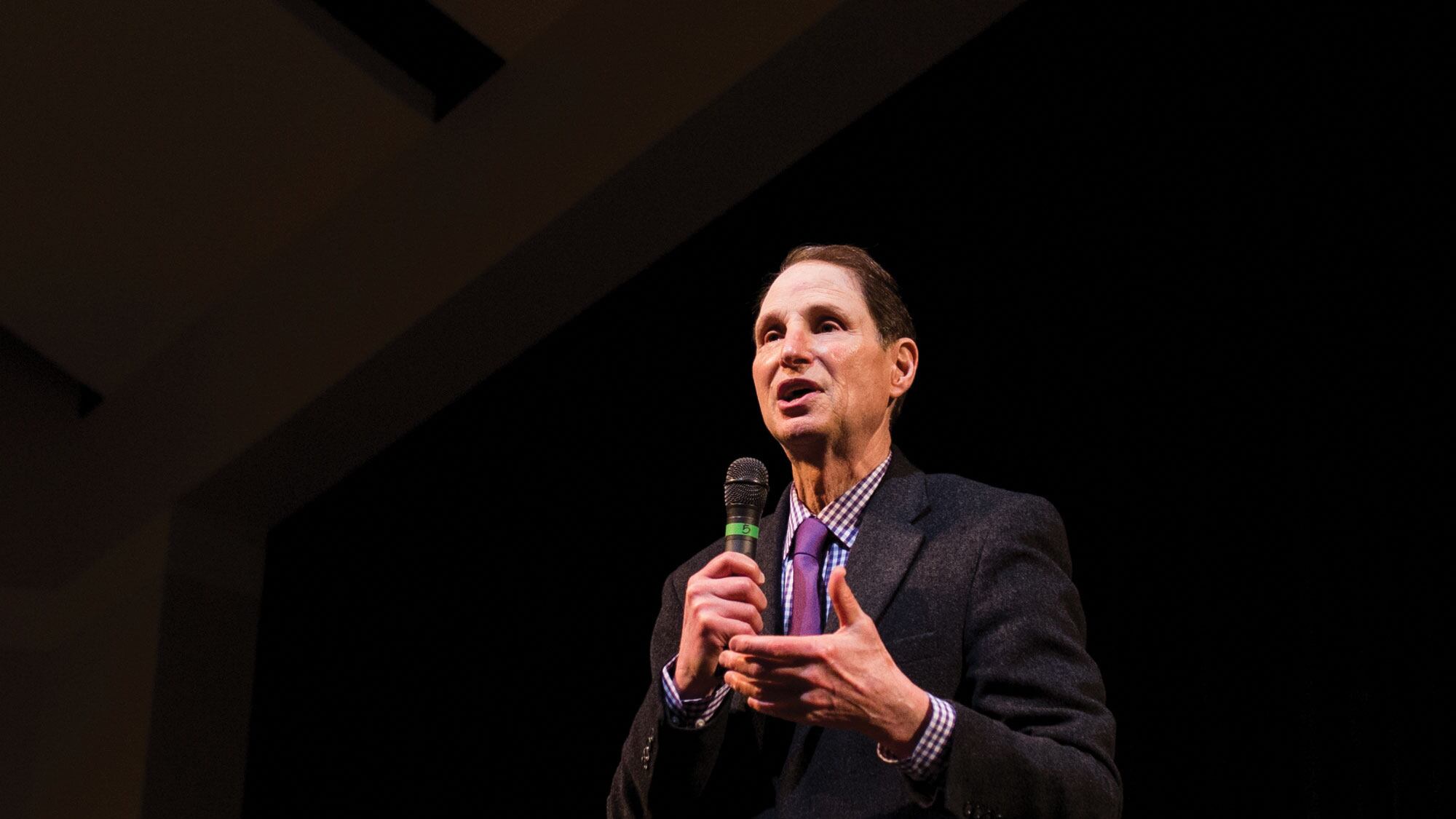This is part five of a five-part story. To start from the beginning, go here.
Last week, WW asked U.S. Sen. Ron Wyden to justify his role as midwife to the internet. He defended Section 230 as a success, but admitted he was struggling to trim away the web's most poisonous tendrils.
WW: What consequences of Section 230 did you not anticipate?
Ron Wyden: I think 230 allowed the net to grow from being a niche tool for academics and well-off folks to creating enormous opportunities for people without clout.
But what about the adverse consequences? Are there any?
There's no question about it. It has been used by the powerful to their advantage. Facebook is a perfect example.
I spoke at a conference on moderation in the Bay Area to all the employees of the tech companies. And I said, "Your companies have done practically everything wrong since the 2016 election. I made a judgment early on that the old rules for media wouldn't work very well in this space. We helped you early on. But your companies have really let the country down by taking full advantage of the shield and dawdling around on the sword. If you don't get serious on moderation, you're going to have a lot of people coming after you. And they're going to be in a very strong position."

If you had known then what you know now about Facebook, would you have written the law differently?
Sure. I still think the basic frame of the shield—particularly for the little guy—is essential. And I'm looking very aggressively for ways to shore up the sword, to get at the slime.
A lot of people don't realize the First Amendment is what creates the biggest opportunity for hate speech. 230 provides an opportunity to address hate speech without the bad guys going off to the Dark Web.
What, specifically, would you write differently?
I'm looking for more ways to create market pressure on the big tech companies to take moderation more seriously. They have customers. They have boards. They have competitors. If one competitor takes moderation more seriously than the other, you begin to flesh out reforms that don't throw the First Amendment in the trash can.
There's a lot of talk about how to go after Facebook. Do you lean in any direction?
Mark Zuckerberg has repeatedly lied to the American people about privacy. I think he ought to be held personally accountable, which is everything from financial fines to—and let me underline this—the possibility of a prison term. Because he hurt a lot of people. And, by the way, there is a precedent for this: In financial services, if the CEO and the executives lie about the financials, they can be held personally accountable. [Editor's note: University of Oregon journalism professor Tim Gleason, who teaches communications law, says such a prosecution is theoretically possible, but "the likelihood of criminal action is rather slim."]
Is the world you and Chris Cox created a good one?
There are lots of problems we have to deal with, in terms of what's happened with technology, and all the extremists, all the hatemongers. But on balance, 230 has done a lot of valuable things.
What happens in tech stuff is kind of like [national] security. People have got to find a way to break out of the old thinking. At one point, Barack Obama said you had to give up 10 percent of your liberty to have security, and I wanted to throw a rock at my television set. Ben Franklin said the two of them aren't supposed to be mutually exclusive. You're supposed to work on both of them.
You guys are asking me all the hard stuff, about what are the next things to try to bolster moderation. And I'm trying to put as much thought into that as I did into getting the original policy enacted.
GO: U.S. Sen. Ron Wyden holds a town hall at the East Portland Community Center Gym, 740 SE 106th Ave., on Thursday, Aug. 29. 5:30 pm.

